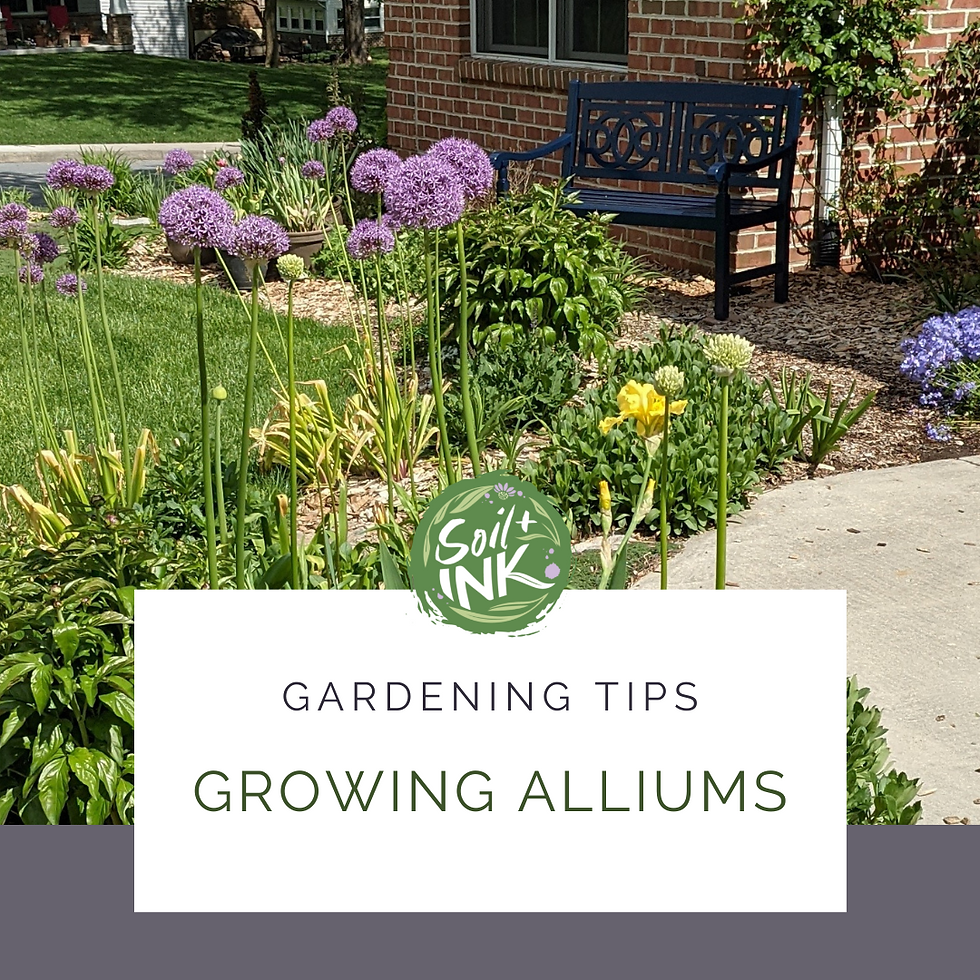Gardening Tips: Growing Alliums
- Angela

- May 29, 2021
- 2 min read
Alliums!
We all love these whimsical bulbs that bridge the gap between spring and summer.

Allium bulbs should be planted in the fall like other spring bulbs -- usually in late October or early November, when the leaves fall from the trees it's time to plant bulbs. Alliums are large bulbs, so they should be planted deeper than tulips and daffodils. A general rule of thumb is is the planting depth should be four times the diameter of the bulb itself. Planting bulbs too shallow may cause them to suffer from frost damage. Alliums will usually come back every year.
I've had several questions lately from people thinking that their alliums are smaller than usual this year. There are a few reasons for this. Generally, the bigger the bulb, the bigger the allium. Not all alliums are the same size to begin with. If you have alliums coming back for the second or third year and they seem smaller, it may be that they weren't able to form as large a bulb this time around. They may be overcrowded - these big guys need plenty of space to collect sunlight, nutrients, and moisture. Plant your allium bulbs at least 8" apart. Another reason your flowers may be small is that they got their foliage cut back too soon. Never cut back a bulb's foliage until it has died back on its own, or pulls away with a very gentle tug. It needs to collect as much sunlight as possible to grow a bigger bulb for next year. Also, never tie your bulbs' foliage into a bundle.
One more tip: like other bulbs, alliums will put some of their energy into forming seeds. These seeds are generally not viable, but the plant spends energy creating them anyway. If you deadhead your bulbs after the flowers have faded, they will put all of their energy into creating a new bulb for next year and not spend any of it on making those seeds.








Commentaires